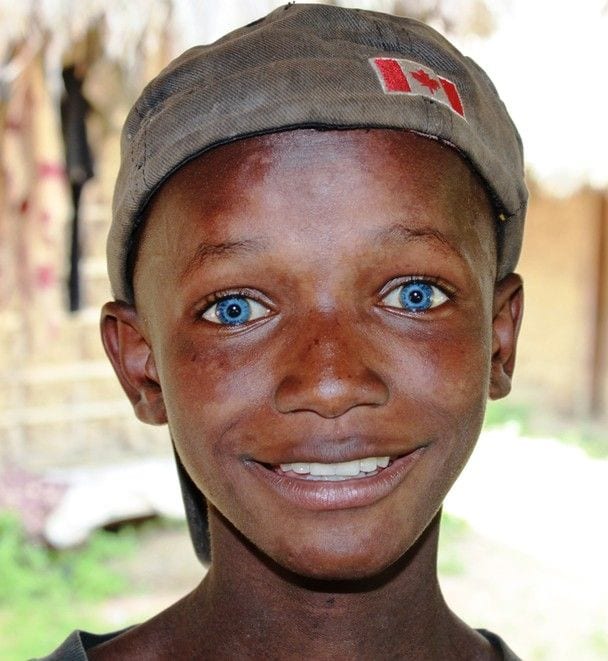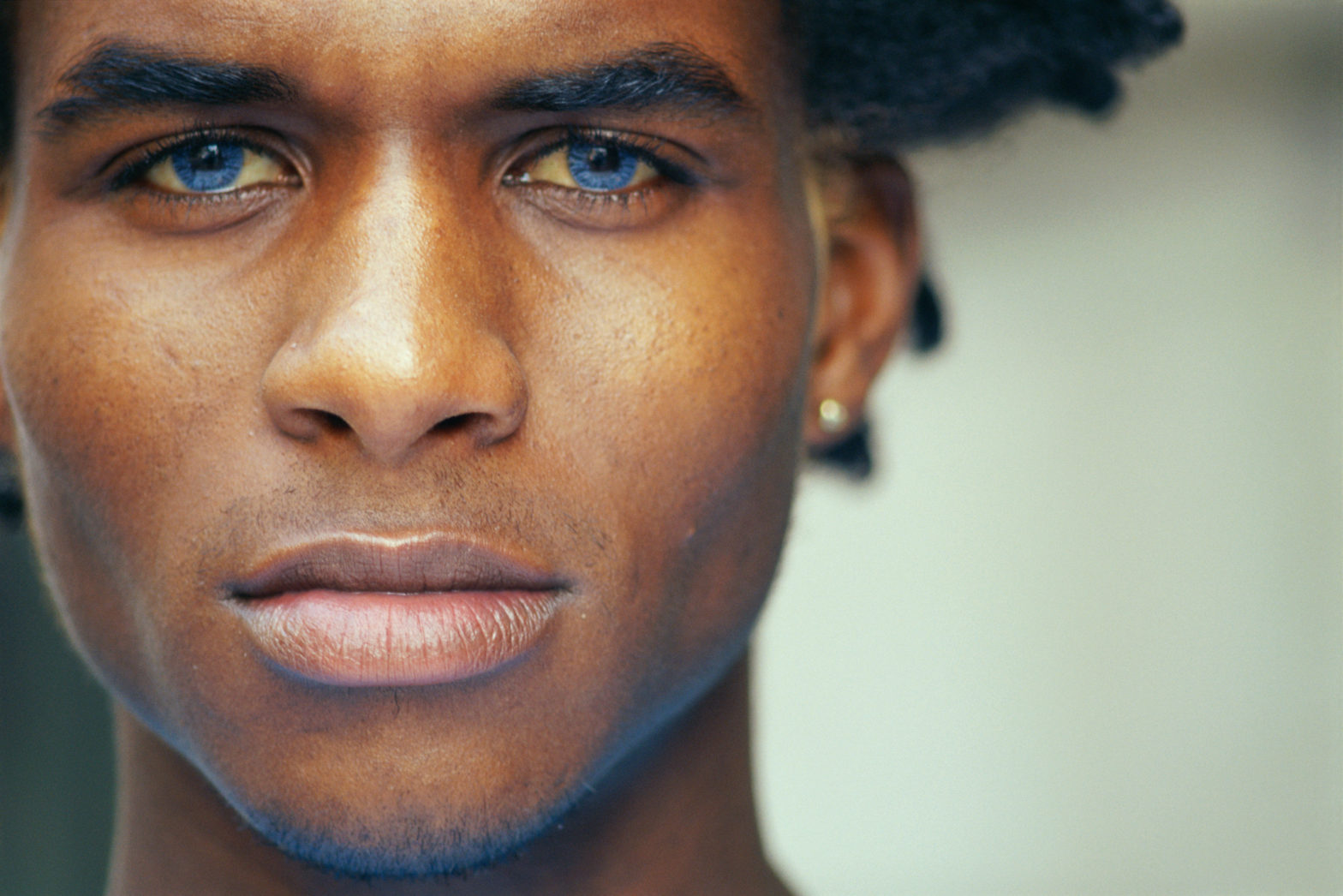Can the vibrant hues of the African continent hold a secret, a genetic echo of a different lineage? The presence of blue eyes among people of African descent, a stark contrast to the predominantly brown-eyed population, presents a fascinating enigma, prompting questions about ancestry, genetics, and the very definition of identity.
Across the diverse tapestry of African tribes, a remarkable phenomenon emerges, a testament to the complexities of human genetics and migration. This is the striking appearance of blue eyes in individuals of African heritage. These mesmerizing eyes, an unexpected feature in the context of traditional African phenotypes, have captivated the world, sparking curiosity and raising questions about their origins.
While the prevalence of blue eyes is significantly lower in people of African descent compared to their European counterparts, their existence is undeniable. This prompts an exploration into the underlying genetic mechanisms and historical influences that have shaped this unique trait.
One of the primary reasons for this rarity is the dominance of brown eyes. Brown eye color is the dominant trait outside of Europe. This means that the gene responsible for brown eyes will almost always express itself, even if a person carries the recessive gene for blue eyes. Additionally, even within the spectrum of brown eye colors, there is a wide range of variation, from light to dark shades.
The genetic basis for eye color is multifaceted, involving multiple genes and factors. Blue eyes are a mostly recessive trait. The primary gene involved is OCA2, which plays a crucial role in melanin production. Melanin is the pigment responsible for the color of the eyes, hair, and skin. A genetic mutation in the OCA2 gene reduces melanin production, resulting in blue eyes. This mutation originated approximately 10,000 years ago and is most prevalent in populations around the Baltic Sea in Northern and Eastern Europe. This is why blue eyes are most commonly found in people of European descent.
However, the story doesn't end there. Blue eyes can also be found in other racial and ethnic groups, including Central Asia, South Asia, North Africa, and West Asia, albeit in much lower numbers. The inheritance of eye color follows Mendelian genetics, where genes come in pairs, one from each parent. Brown eyes are dominant over blue eyes. Thus, for a child to have blue eyes, they must inherit two copies of the blue-eye gene, one from each parent. If both parents carry the recessive gene for blue eyes, even if they themselves have brown eyes, their child has a chance of having blue eyes. This is what is meant by a "carrier." A carrier is someone who possesses the gene for blue eyes but does not express it because they also have a dominant brown-eye gene.
The presence of blue eyes in people of African descent is often the result of one of several factors. Firstly, as mentioned, it can be a result of a recessive gene hidden in a family. Secondly, it can be a result of genetic mutations. Also, intermarriage and genetic diversity shape the existence of black people with blue eyes across the globe. And finally, migration also has a role to play, as people move around and intermarry.
One condition that can affect the appearance of the eyes is ocular albinism, a rare genetic disorder. This condition affects the production of melanin in the eyes, resulting in a lighter iris color, which can range from blue to green or brown. The color of the iris can also change over time, becoming darker as a person ages.
In certain regions, such as Kwara State in Nigeria and subregions of Melanesia, the occurrence of blue eyes and even blonde hair in people of African descent is more noticeable. Researchers are also uncovering new information about the earliest inhabitants of Ireland, with some data suggesting that the first settlers were black people with blue eyes. The team of scientists traced the mutation back to the OCA2 gene, which is the gene responsible for producing melanin.
It's important to clarify a common misconception. While many newborns may appear to have blue eyes at birth, this is not always the case. The Newborn Eye Screening Test (NEST) study found that 63% of babies were born with brown eyes, while only 21% were born with blue eyes. The eye color of a child is specific to their genetic material. Parents genes play a significant role in determining the eye color of their children.
The iris, the colored part of the eye, determines eye color through its pigmentation. The color of the human eye generally depends on three genes: brown, green, and blue.
Here's a look at some hypothetical individuals, and their eye color details, a hypothetical data for illustrative purposes:
| Trait | Details | Example |
|---|---|---|
| Eye Color | Blue (Recessive), Brown (Dominant) | A child with both parents carrying the blue-eye gene |
| Genetic Basis | OCA2 gene mutation, recessive trait | Individual inheriting two copies of the blue-eye gene |
| Prevalence | Less common in people of African descent | Most common in people of European descent |
| Associated Conditions | Ocular albinism | May result in lighter iris color |
| Cultural Significance | Unique and often perceived as striking | Represents a blend of heritage |
The presence of blue eyes in individuals of African descent is a fascinating example of genetic diversity and the complexities of human ancestry. It serves as a reminder that human populations are not monolithic, and that genetic traits can be expressed in unexpected ways. The study of this phenomenon continues to provide valuable insights into the origins and evolution of the human race.
Famous black celebrities with blue eyes include.
| Name | Details | Reference |
|---|---|---|
| Actress | Most of the time, a light-colored eye | celebrity eye details |
| Musician | Have the gene | celebrity eye details |
| Actor | Recessive gene | celebrity eye details |
It's essential to recognize that eye color is a complex trait influenced by multiple genes, and the presence of blue eyes in individuals of African descent is a testament to the fluidity and interconnectedness of human populations.


